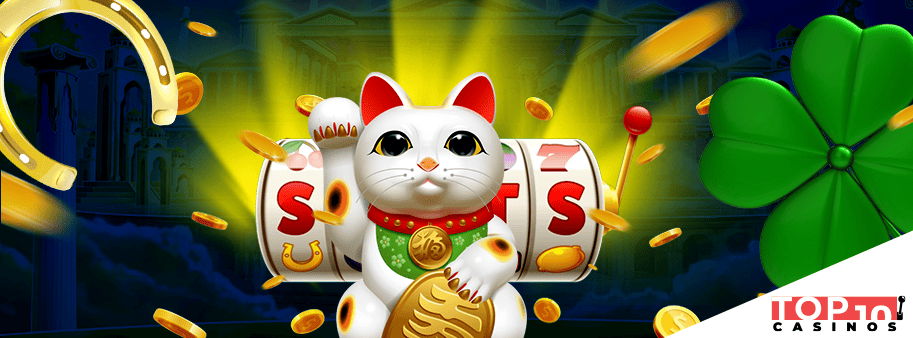The History of Lucky Charms
Lucky charms are rooted in centuries-old beliefs:
- Four-Leaf Clover: Rare in nature, it represents faith, hope, love, and luck in Celtic tradition.
- Horseshoe: Seen as protective in medieval Europe, where iron and its U-shape were thought to capture good fortune.
- Rabbit's Foot: A symbol of fertility and luck in African-American folklore, often tied to specific rituals.
- Maneki-Neko: Japan's beckoning cat figurine, thought to attract wealth and prosperity, especially in business settings.
- Lucky Coins: Revered in cultures worldwide, coins with engravings or unique designs often signify abundance.
These objects embody humanity's desire to control uncertainty, offering comfort and hope in unpredictable situations.
Gambling Superstitions
Luck is at the heart of gambling, so it's no surprise that superstitions are a big part of the experience. Many players bring along personal lucky charms, like dice or tokens, that they believe hold special power. Others might have a favorite "lucky" outfit they swear by, often tied to a memorable win. Some treasure sentimental items gifted by loved ones, convinced they bring good fortune.
"While lucky charms don't alter the mathematical odds of online casino games, they can enhance a player's confidence and enjoyment," says Emre from revpanda. "Believing in these talismans can lead to a more positive gaming experience, even if they don't directly influence outcomes."
These rituals and objects don't change the odds of the games, but they do provide comfort and confidence, acting as mental anchors that help players stay focused and calm under pressure.
Case Study: Do Lucky Charms Affect Gameplay?
Objective
Investigate whether lucky charms impact win rates, betting behavior, and player psychology in online casino games.
Methodology
- Participants: 100 seasoned gamblers, split into two groups:
- Group A: Played with their preferred lucky charms.
- Group B: Played without charms.
- Games: A mix of luck-based (slots, roulette) and skill-based (blackjack, poker) games.
- Duration: 50 game sessions per participant over four weeks.
- Metrics: Win rates, bet sizes, confidence, stress, and session lengths.
Results
- Win Rates: Group A (48.2%) vs. Group B (47.5%) - no significant difference.
- Betting Behavior: Group A placed higher average bets (+8%) and took more risks (+12%).
- Psychological Impact: Group A reported increased confidence (+1.7 points) and lower stress (-1.7 points).
- Session Duration: Group A played longer sessions (45 minutes vs. 40 minutes for Group B).
Our Insights
While lucky charms didn't influence the statistical outcomes of games, their psychological benefits were evident. Players with charms felt more confident, took bolder risks, and reported greater enjoyment. These behaviors may indirectly improve results in skill-based games, where strategy and mental focus are critical.
Psychologists attribute these effects to the placebo effect, where belief in the charm's power enhances performance by reducing stress and fostering a positive mindset. Though charms don't change probabilities, they influence the player's approach to the game, making them more engaged and resilient.
Lucky charms may not rewrite the algorithms of online casinos, but they contribute to the overall experience by adding personal meaning and emotional comfort. Whether they're symbols of hope or reminders of tradition, these objects help make the unpredictable world of gambling a little more human and a lot more enjoyable.










